At the beginning of this year, WhatsApp rolled out its new privacy policy that has managed to create quite a stir. WhatsApp’s new agreement is aimed at the upcoming changes to its platform that will allow better interaction between businesses and users. Businesses can use the user chat data for their own marketing purposes including advertising on Facebook. The new privacy policy has led to hundreds of thousands of users trying out Signal and Telegram as an alternative to WhatsApp.
Signal vs WhatsApp
Signal, once a niche messaging service for the privacy-minded, is currently the most downloaded app in the United States, unseating perennially popular social media and gaming apps. In many ways, it’s similar to WhatsApp with privacy and security at heart. If you are planning to switch from WhatsApp to Signal and not sure about the new experience then you have come to the right place.
In this post, we will compare Signal to WhatsApp and see which IM app makes better sense for you. Let’s get started.
User Interface and Theming Engine
Both WhatsApp and Signal follow a clean User Interface to navigate users. On WhatsApp, you will notice a nicely laid out bottom bar featuring Chat, Calls, Stories, and Settings tab. The implementation makes it easy for users to navigate through them without stretching hand.
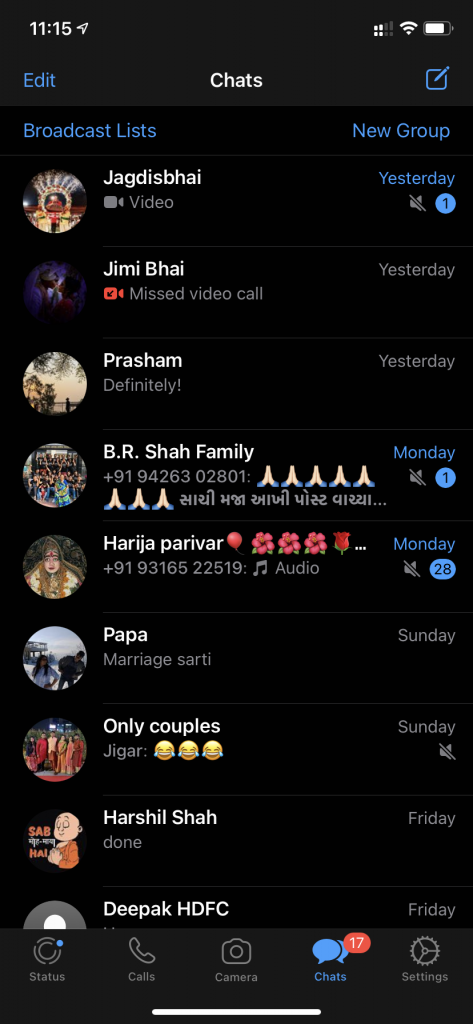
Signal has all the options at the top. You will have to reach the top every time to open Settings or compose a new chat. My major gripe with Signal is the lack of a dedicated Calls tab. There is no way to peek at the Voice/Video call history in the app.
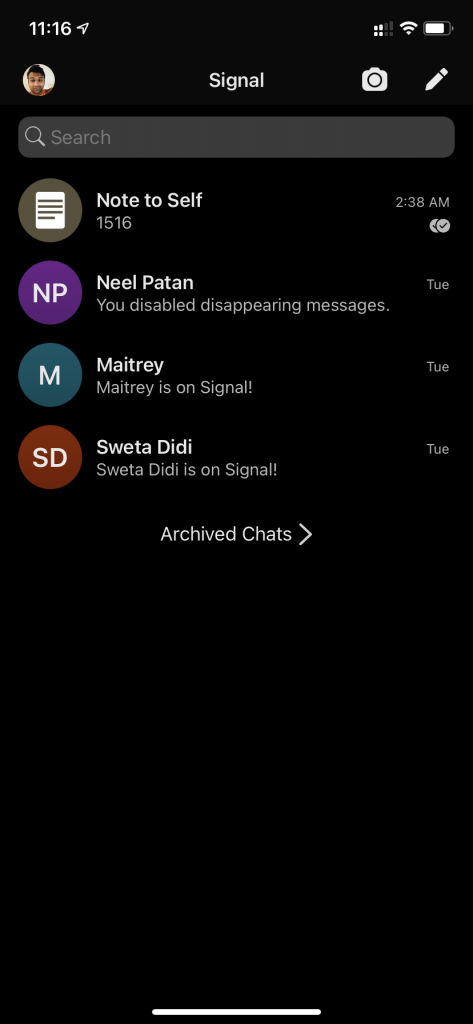
As for the theming options, both WhatsApp and Signal support iOS/Android dark theme. WhatsApp goes a step ahead and allows you to change the chat background as well. Signal only supports chat theme while keeping the default background the same boring in plain white/black.
Privacy and Security
The basic chat experience with text, emoji, GIF, stickers, and media files remains more or less the same between Signal and WhatsApp. The major difference strikes when it comes to handling user data. Let’s start with WhatsApp’s take on user privacy.
WhatsApp offers end-to-end encryption to protect text, voice calls, and video calls among users. It’s based on the open-source Signal protocol. The company closely guards its code, and while there has been no evidence that WhatsApp’s encryption has been cracked, the truth is, its technology cannot be examined so easily.
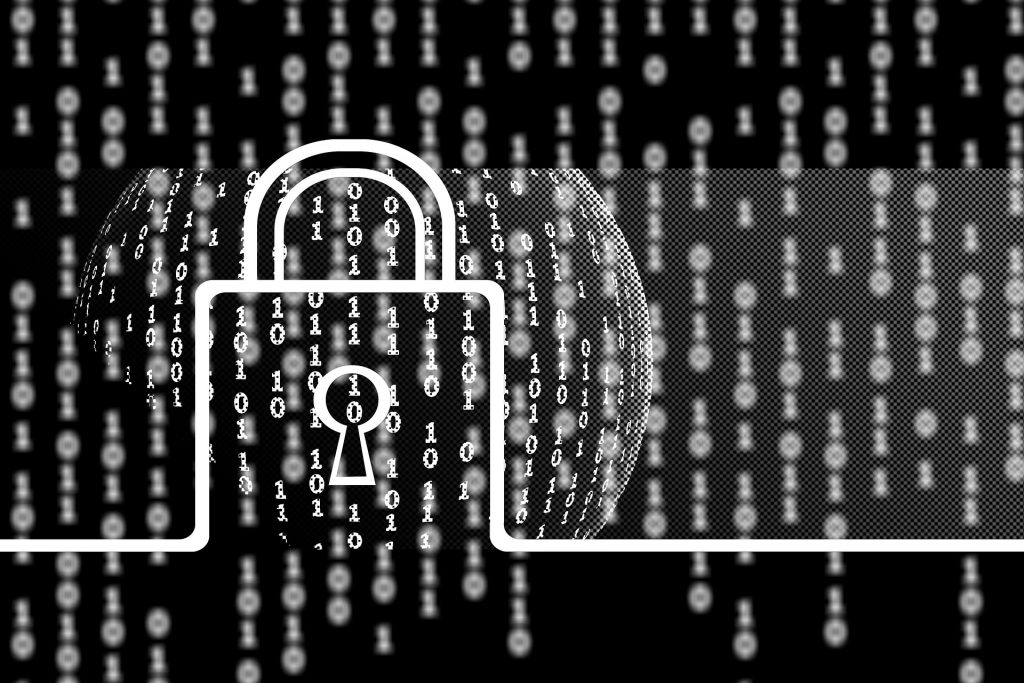
As for user information, WhatsApp’s data collection includes your address book and other metadata such as IP addresses, connection details, and, because it’s part of the Facebook family, data is shared between the app and its parent company. The shared data is linked to Facebook profiles to improve Facebook ads and product experience. Folks, there is a reason why Mark Zuckerberg paid $19 billion to buy WhatsApp back in 2014.
Signal uses Open Whisper System to E2E encrypt all conversations by default. It’s an open-source encryption algorithm. The encryption keys are stored on users’ phones and computers and not on any server, thus eliminating any potential attempt of spoofing.
Signal allows you to verify each other’s profile by verifying Safety Numbers or scanning QR codes that contain a unique set of numbers and mark the profile as verified.
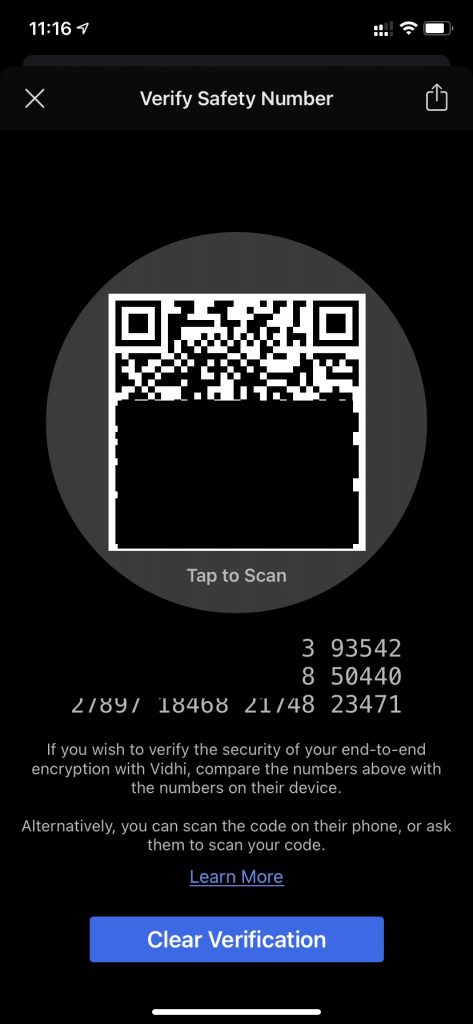
As for voice calls, Signal offers an option to ‘Always relay calls’ so that all calls go through the Signal server to avoid revealing your IP address to your contact.

As you can see, Signal comfortably wins this round. We can see why Signal gets an easy recommendation from the likes of Edward Snowden, Jack Dorsey, and Elon Musk.
Also Read: Best Windows 10 Privacy Tools
Features List
Both WhatsApp and Signal are packed with features to enhance the experience for all types of users.
- Group video calls (up to 8 users)
- WhatsApp Stories
- Share live location
- Disappearing messages
- Group chats with up to 256 members
- WhatsApp Payment (India)
Signal
- Support for self-destructing messages
- Note to Self add-on to collect thoughts and ideas
- Group video calls (up to 8 members)
- Screen security to prevent Signal previews from appearing in the app switcher
Chat Backup
WhatsApp uses third-party cloud services such as Google Drive or iCloud to backup/restore chat data. Do keep in mind that these backups aren’t protected by end-to-end encryption. You can also generate an offline backup file to store on the device. However, there is no direct way to transfer chat history from Android to iPhone or vice versa.
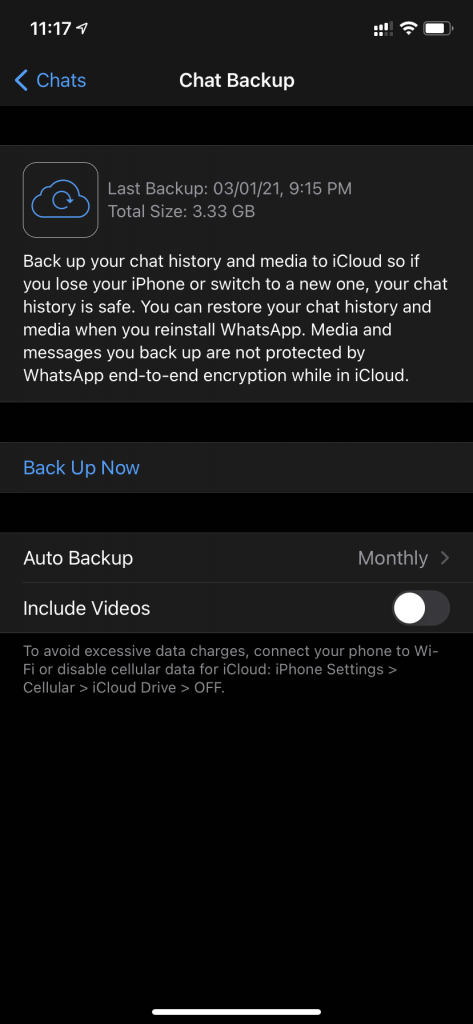
Signal on iOS uses QR code to transfer user data from one device to another. On Android, you can manually move the backup file from your old device to the new one and restore the data. If you have lost your old phone then there is no way to restore Signal data on the new device.
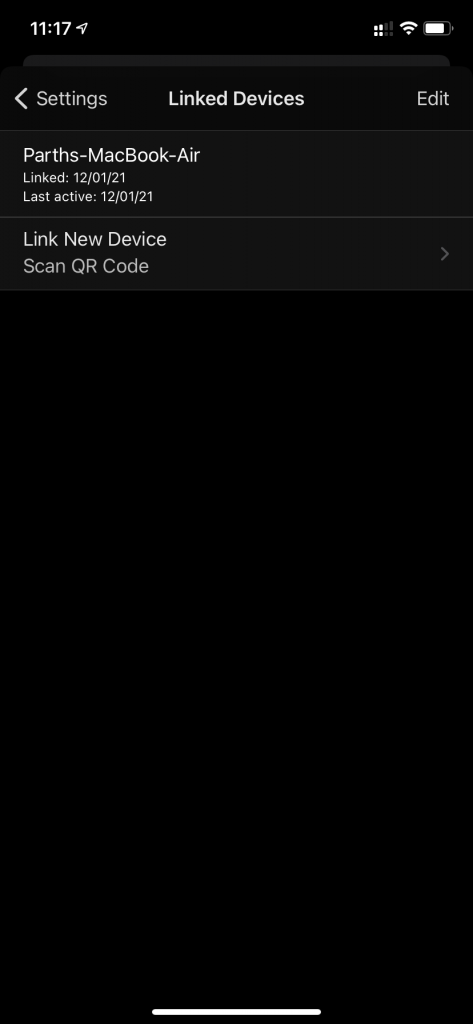
Popularity
We can’t end the comparison without mentioning WhatsApp’s secret and most lethal weapon – popularity. The service is used by over two billion users around the world. There is a good chance that the majority on your contact list is already using WhatsApp. It becomes very convenient for an average user to start using the service with friends and family. After all, what’s the use of all the privacy and security features if only a small portion of your contacts are using it in the first place.
Signal is relatively new in the IM space. We don’t have the official user base figures but it’s very slim compared to WhatsApp. You will have to put in some effort and convince your close circle to give Signal a try.
Pricing and Platform
Both WhatsApp and Signal are absolutely free with no ads or endorsements and are available on all major computer and mobile operating systems. But Signal is a non-profit organization running on donations and WhatsApp is owned by Facebook which sells data to advertisers to generate revenue.
Closing Words: Signal vs WhatsApp
It all boils down to personal preference. If you are fine with WhatsApp’s policy changes and don’t want to go through the headache of convincing your contacts to join the Signal platform then stick with Facebook’s platform. Signal has far superior security add-ons but you might have to wait or even convince your friends and family members to join Signal messenger.
On the other hand, privacy is fast becoming a luxury and we need open source apps like Signal more than ever.